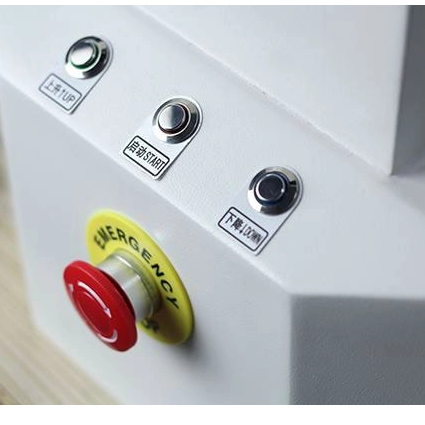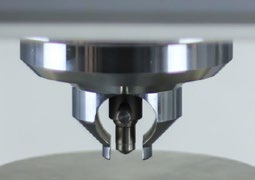
A Premium Measuring Testing Instrument Product Brought to You by Mikrosize
Product Overview
As a leading supplier of precision testing equipment, Mikrosize is proud to present this touch screen digital display Rockwell hardness tester—a cutting-edge solution in the field of Measuring Testing Instrument Products. Designed for accuracy, durability, and user-friendliness, this instrument meets global industry standards and caters to diverse material testing needs across sectors such as manufacturing, metallurgy, and quality control.

Key Features
Robust Construction: The tester body is crafted from high-quality cast iron, manufactured via one-piece casting, and finished with automotive-grade paint. This ensures a smooth, sleek appearance while enhancing structural stability and resistance to wear.
Temperature Monitoring Function: Equipped with a digital temperature measurement circuit, the instrument maintains stable and reliable performance even during long hours of continuous operation—critical for consistent testing results.
Automatic Surface Correction: It features an automatic correction function for cylindrical and spherical workpieces, complete with clear on-screen prompts. This eliminates manual calculation errors and simplifies testing for irregularly shaped samples.
Hardness Value Alarm: Users can set upper and lower limits for hardness values. If a test result exceeds the preset range, the instrument emits an audible alarm, enabling real-time quality control.
Software-Based Hardness Correction: A built-in software function allows direct correction of hardness values within a specific range, ensuring measurement accuracy without the need for external calibration tools.
Advanced Database Functionality: The integrated database automatically groups and stores experimental data. Each group can hold up to 10 data points, with a total storage capacity of over 2000 data points—ideal for traceability and data analysis.
Hardness Curve Display: The touch screen intuitively shows hardness value changes through dynamic curves, making it easy to visualize testing trends and identify material inconsistencies.
Comprehensive Data Recording: The database automatically logs key parameters, including measuring scale, test force, hardness value, and ambient temperature—providing a complete audit trail for compliance and reporting.
Customizable Test Points: Users can freely set the number of experimental points per group (ranging from 1 to 10 points), adapting to different testing requirements and sample sizes.
Automatic Data Calculation: The system automatically computes critical statistical values for each group, including maximum hardness, minimum hardness, average value, and standard deviation—saving time and reducing human error.
Convenient Unit Conversion: The user-friendly control system supports automatic conversion between all Rockwell hardness scales (e.g., HRC, HRB, HRA), eliminating the need for manual unit calculations.
Multiple Data Output Options: Configured with a wireless Bluetooth printer, the tester enables instant hardcopy printing of results. It also supports data transfer via RS232 and USB interfaces, facilitating seamless integration with computers or LIMS (Laboratory Information Management Systems).
Built-In Lighting: An independent small lighting fixture is included, providing clear visibility for sample placement and operation in low-light environments—enhancing user comfort and testing precision.
Global Standard Compliance: The accuracy of this instrument fully complies with international standards, including GB/T230.2-2018 (China), ISO6508-2 (International Organization for Standardization), and ASTM E18 (United States)—ensuring results are recognized and trusted worldwide.
Application Scope
This touch screen digital display Rockwell hardness tester (a flagship Measuring Testing Instrument Product from Mikrosize) is widely applicable for measuring Rockwell hardness in:
Ferrous metals (e.g., carbon steel, stainless steel), non-ferrous metals (e.g., aluminum alloys, copper alloys), and non-metallic materials.
Heat-treated materials, including hard alloys, carburized steel, quenched steel, surface-quenched steel, hard cast steel, malleable castings, mild steel, quenched and tempered steel, annealed steel, and bearings.
Various metal materials subjected to surface heat treatment (e.g., nitriding, induction hardening) and chemical surface treatment (e.g., galvanizing, chrome plating).















